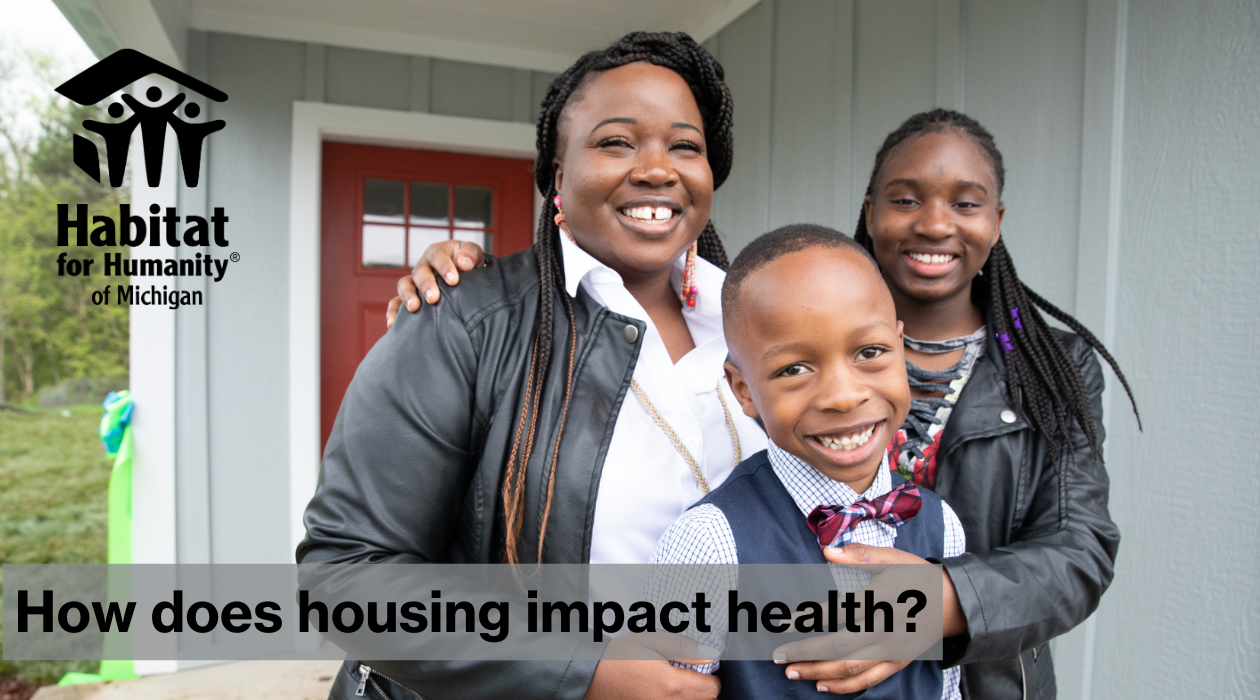Evidence Brief by Habitat for Humanity Explores Housing’s Impact on Health
In a comprehensive analysis titled “How Does Housing Impact Health?” released by Habitat for Humanity, significant insights into the crucial relationship between housing and health are described. The evidence brief underscores the profound influence that housing conditions and affordability have on individuals’ well-being, particularly among households with limited financial resources.
Key takeaways from the brief shed light on the intricate nexus between housing and health:
1. Poor Housing Conditions and Affordability Challenges:
The evidence reveals a correlation between substandard housing conditions, unaffordable housing, and negative health outcomes, especially for low-income households. Many of these families grapple with housing cost burdens, which often force them into trade-offs between basic necessities like food, healthcare, and shelter.
2. Health Impacts of Substandard Housing:
Substandard housing conditions significantly contribute to adverse health outcomes, such as respiratory issues, lead poisoning, and increased injury risks, particularly among vulnerable demographics like children and the elderly. For instance, indoor moisture and mold exposure in homes alone account for approximately 21% of childhood asthma cases, highlighting the urgent need for improved housing standards.
3. Benefits of Stable and Affordable Housing:
Access to stable and affordable housing is a crucial determinant of better health outcomes and reduced healthcare costs. Low-income households transitioning into more affordable and stable housing experience a decline in emergency department visits and an uptick in primary care utilization, leading to decreased Medicaid healthcare expenditures.
4. Safety Improvements Yield Health Dividends:
Enhancing home safety by eliminating physical hazards translates into improved health outcomes, especially for children and the elderly. Efforts to remove asthma triggers like pests and mold, coupled with community case management, have proven instrumental in lowering healthcare utilization rates and enhancing the overall quality of life for affected individuals.
5. Neighborhood Factors and Health:
The location of housing plays a pivotal role in shaping physical health outcomes and dietary habits. Moving from high- to low-poverty neighborhoods has been associated with reduced prevalence rates of extreme obesity and diabetes among women. Residing in neighborhoods with access to healthy foods, facilitated by proximity to supermarkets, fosters increased fruit and vegetable consumption, particularly among low-income households lacking transportation options.
The evidence brief by Habitat for Humanity serves as a call for policymakers, housing advocates, and healthcare professionals to recognize housing as a fundamental determinant of health.
Addressing housing affordability, improving housing standards, and fostering inclusive communities are imperative steps towards safeguarding the health and well-being of individuals and families. As the findings underscore, investing in housing not only enhances living conditions but also yields substantial dividends in terms of improved public health outcomes and reduced healthcare expenditures.
Download and read the full evidence brief.
Take action today and arm yourself with invaluable insights to advocate for equitable housing initiatives that promote the well-being of individuals and families in Michigan.


